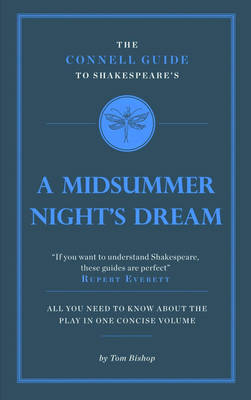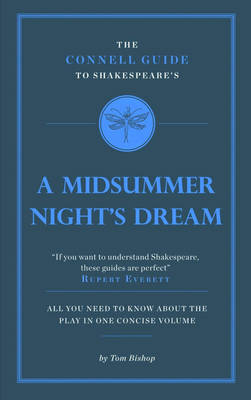
Door een staking bij bpost kan je online bestelling op dit moment iets langer onderweg zijn dan voorzien. Dringend iets nodig? Onze winkels ontvangen jou met open armen!
- Afhalen na 1 uur in een winkel met voorraad
- Gratis thuislevering in België vanaf € 30
- Ruim aanbod met 7 miljoen producten
Door een staking bij bpost kan je online bestelling op dit moment iets langer onderweg zijn dan voorzien. Dringend iets nodig? Onze winkels ontvangen jou met open armen!
- Afhalen na 1 uur in een winkel met voorraad
- Gratis thuislevering in België vanaf € 30
- Ruim aanbod met 7 miljoen producten
Zoeken
€ 15,45
+ 30 punten
Omschrijving
What explains the special quality of A Midsummer Night's Dream? Samuel Johnson called the play "wild and fantastical", noting how "all the parts in their various modes are well written and give the kind of pleasure which the author designed". The 19th-century critic William Hazlitt wrote, in the play's own imagery, of his "wandering in a grove by moonlight" through "a sweetness like odours thrown from beds of flowers". For these critics, the variety of language, character and incident on offer in the Dream was particularly pleasant and happy, and suited what they saw as the overall bent of the play towards happiness. G. K. Chesterton responded to "a spirit that unites mankind" in "the mysticism of happiness" and of the play's "pure poetry and intoxication of words", "the amazing artistic and moral beauty" of its design. As Tom Bishop says in this thoughtful guide to the play, one can acknowledge all this, and yet also note how the brightness of that design is full of shadow. Indeed, "shadow" is an important word in the play; the very actors who present it are finally called "shadows". If the play celebrates happiness, it also knows something sadder, not only that unhappiness is possible but that happiness itself may be maintained only by a fragile resolution, perhaps by mere good fortune. Happiness is a kind of gift, perhaps even a kind of grace. In this play, the gift is not withheld, but the play remains very much aware of how it might be, of what slight turn would produce a very different outcome, one not less true to its picture of human life, if less lucky.
Specificaties
Betrokkenen
- Auteur(s):
- Uitgeverij:
Inhoud
- Aantal bladzijden:
- 128
- Taal:
- Engels
- Reeks:
Eigenschappen
- Productcode (EAN):
- 9781907776182
- Verschijningsdatum:
- 1/09/2018
- Uitvoering:
- Paperback
- Formaat:
- Trade paperback (VS)
- Afmetingen:
- 109 mm x 175 mm
- Gewicht:
- 149 g

Alleen bij Standaard Boekhandel
+ 30 punten op je klantenkaart van Standaard Boekhandel
Beoordelingen
We publiceren alleen reviews die voldoen aan de voorwaarden voor reviews. Bekijk onze voorwaarden voor reviews.











